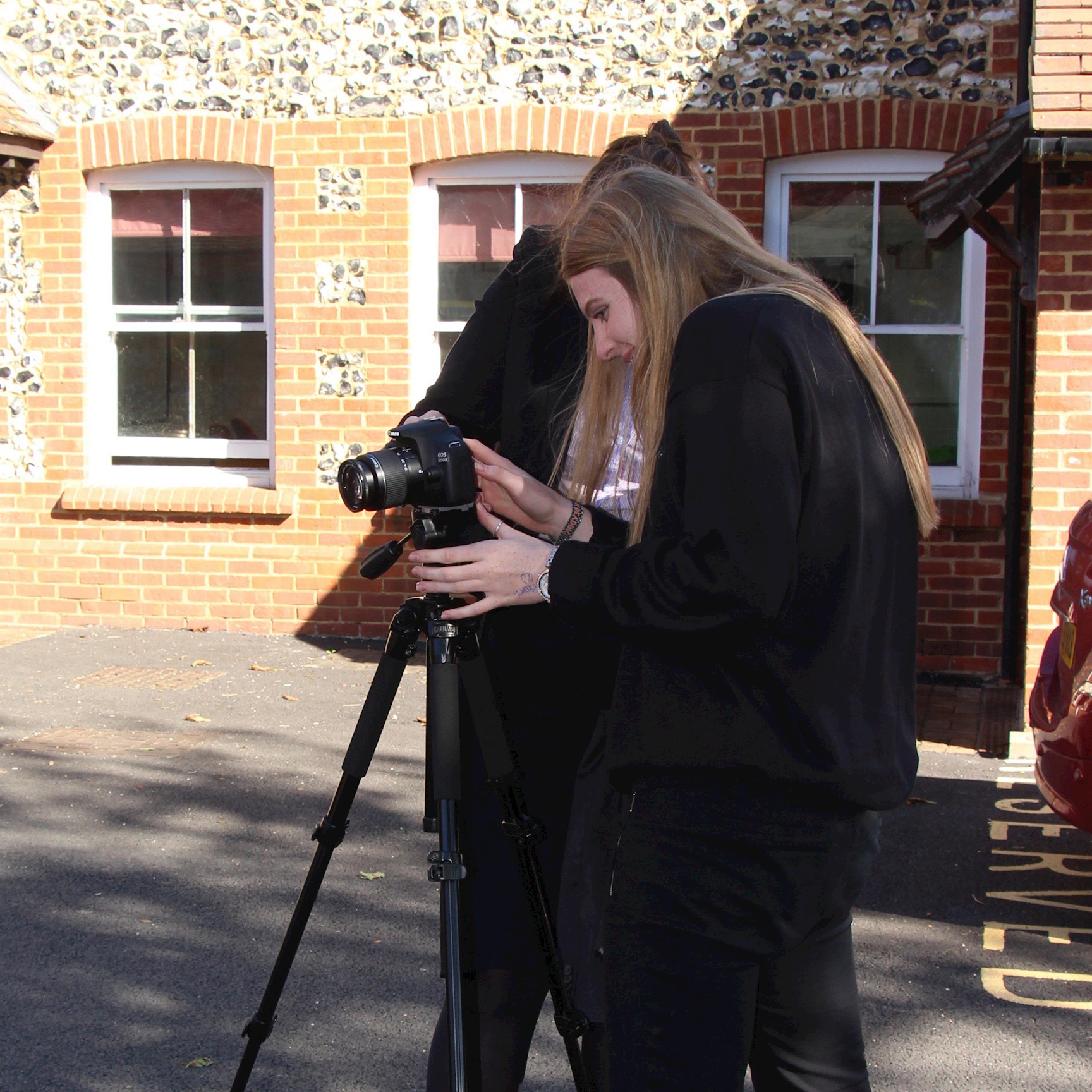
In the last Shiplake Spotlight of this academic year, Head of Media Studies, Mr Marcus Milburn talks about how studying the media in the Sixth Form, equips students with the ability to critically evaluate messages which are so prevalent in today's world. From print media to social media, never before has opinion from so many sources influenced what we think and feel. Studying the media allows us to question, debate and deconstruct messages to help us understand world issues in a more balanced way.
Every single day, we actively choose to engage with a range of media platforms, each of which carries their own messages that can have an impact on how we see the world. We choose to log on to particular websites and social media channels, we opt to watch the news from specific sources, we make decisions about the television programmes and the films we watch, the video games we play and the newspapers we read. Given that we have learned a huge amount about the Coronavirus pandemic and social movements like ‘Black Lives Matter’ and that we have seen different people’s opinions of these events through the media means that the subject is more vital now than ever. Media Studies is a subject designed to give students the skills to critically evaluate these texts and platforms and identify not just what the messages are, but how they are constructed.
My personal interest in the media comes from when I used to watch lots of movies as a child, something I continue to do today, and I love finding hidden gems online and watching films that wouldn’t necessarily be at the top of everyone’s watchlist. Before lockdown, I was lucky enough to get to see ‘The Lighthouse’ in the cinema - a wonderfully 'odd' black and white film that I found to be incredibly immersive and visually stunning. I love having the opportunity to share my passion for the subject with others.
Students taking Media Studies have an opportunity to engage with a range of media, both from an academic perspective and a practical one as they will undertake two coursework projects. This is a chance for students to put into practice their theoretical media skills, In Year 12, the aim is to create a film opening. Students choose a particular genre and research how films of that type are constructed then they get to take the cameras out and make their own versions. It is a similar setup in Year 13 with music videos being the subject in the second year of the course. I have had the pleasure to see some incredibly creative work being produced over the years and some students have utilised technology such as drone cameras to make films and videos that have a truly professional feel to them. At the end of every year, the department holds the ‘Shiplake Oscars’ where we showcase this work to the rest of the school and give out awards for categories such as directing, editing, performance and, of course, the coveted best film and best music video awards. It’s a wonderful way to celebrate the efforts of all the students and I really feel that it inspires pupils lower down the school who may want to take Media Studies when they come to choose their options for Sixth Form.
Away from the practical aspects of the course, we also cover a wide range of topics from a more academic and theoretical perspective. In Year 12, the main topics are analysing film and television extracts, focusing on how aspects such as the camera, editing and sound create deeper meanings, much like we might do in English when deconstructing a poem and using references to rhythm and metaphor. The transferable skills that are acquired pre-A Level means that, essentially, everyone can study the course and be prepared for its challenges and opportunities. The other Year 12 topic is a study of the media industry and the relationship it has with audiences. Recent case studies have included Disney alongside some British independent films and students have compared and contrasted the methods these companies use to attract audiences and keep them entertained.
The Year 13 content is changing slightly this year and, alongside the topic of media regulation (my personal area of expertise), both Mr Gubby and I are excited to be able to deliver lessons on postmodern media and media ecology; both of these topics are extremely relevant in the current climate and will allow students to see the media world from a range of eye opening perspectives.
I am also excited to see what the next big thing to happen in the media is as technology develops and we are able to experience these texts in new ways. Going forward, everyone should have the opportunity to study the media as it has the potential to be such an influential force and we need to question, debate and discuss its intentions.
About Shiplake Spotlight
Shiplake prides itself on the huge array of subjects and co-curricular opportunities available to all pupils. There really is something for everyone to ignite enthusiasm, passion and creativity. At Shiplake, we encourage pupils to find their ‘thing’. The thing they can’t wait to get out of bed in the morning to do, the thing where they set themselves challenges and goals to get better, the thing that motivates and inspires them.
Each week, we will be bringing you a spotlight on an individual subject or co-curricular activity from our teachers, who for them, this is their ‘thing’. We hope their insights will spark some passion in you to learn something new, or simply find out more about what Shiplake has to offer.





.jpg&command_2=resize&height_2=85)
